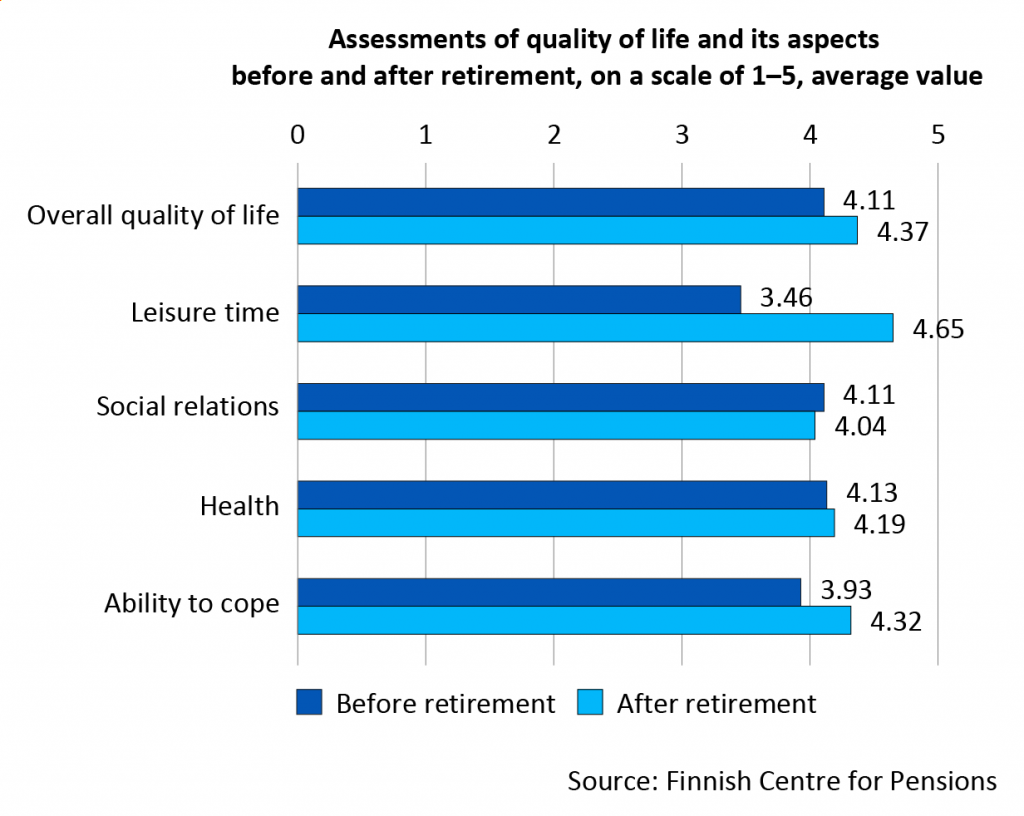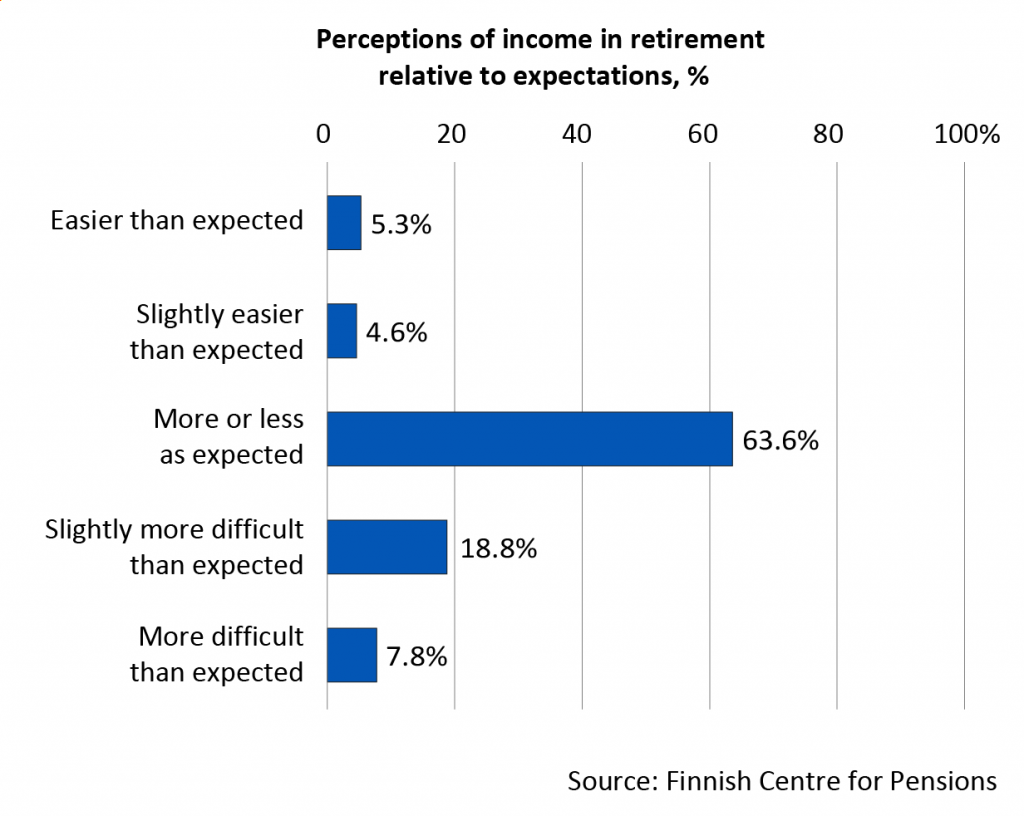Quality of life improves after retirement despite perceived lower income

The majority of respondents feel that their quality of life has improved after retirement on an old-age pension, with more leisure time increases and better coping skills. However, income is perceived as weaker, according to a survey conducted by the Finnish Centre for Pensions among people who had recently retired from gainful employment with an old-age pension.
The study shows that people who have recently retired perceive their quality of life to be at least fairly good on average before retirement, but that it improves further after retirement. In particular, satisfaction with the amount of leisure time available increased significantly, and more people than before felt that they could cope well.
“Retirement can improve the quality of life, especially for those who found their work too stressful, had problems with coping or had hoped for more leisure time”, says Senior Researcher Liisa-Maria Palomäki of the Finnish Centre for Pensions.

According to Palomäki, the study shows that retirement in a multifaceted change in life. “Retirement is perceived as bringing both positive and negative changes, but when these are added up, the overall quality of life improves on average.
Income changes mostly expected – yet a quarter find it harder than expected to make ends meet
Before retirement, 90 per cent of the respondents felt that they were able to meet their expenses fairly easily.
After retirement, making ends meet became more difficult. However, two in three people say that it is still at least fairly easy to make ends meet. Nearly one in ten, on the other hand, state that it is difficult or very difficult to cover everyday expenses. “Although making ends meet tended to be more difficult after retirement than before, changes in income were largely in line with the respondents’ expectations. However, one in four respondents found it more difficult than expected to make ends meet”, explains Sanna Tenhunen, economist at the Finnish Centre for Pensions.

Little change in social relations after retirement
On average, respondents were only slightly less satisfied with their social relations after retirement than before. A slight increase in dissatisfaction is most likely related to the importance of social relations at work. In a previous research report, three in four retired persons said that the social relations at work before retirement had been important to them.
Longer working lives would require more flexibility in the workplace
According to the study, quality of life is perceived more positively after retirement. This suggests that there may be factors in working life that make people reluctant to work beyond their retirement age.
When making the decision to retire with an old-age pension, many people are likely to consider changes that will affect their quality of life, such as more leisure time and improved coping skills.
“To prolong working life, we need to develop various flexible elements in working life and determine how to help workers approaching their retirement age to continue working longer”, says Palomäki. Almost 3,400 people who will retire from paid work with an old-age pension between 2019 and 2021 took part in the survey.
Research publication
Previous reports based on the survey
- Financial incentives or working conditions – What would keep people working longer? Survey of persons retiring from work on an old-age pension in 2019–2021
- Working in retirement – Survey of persons retiring from work on an old-age pension in 2019–2021
- Work, health and social relations underlying retirement – Results from a survey among pensioners retiring from work

